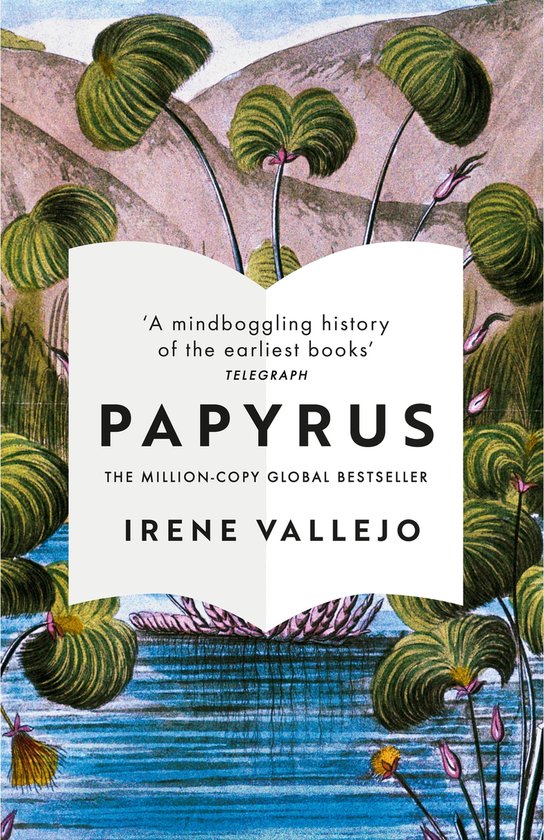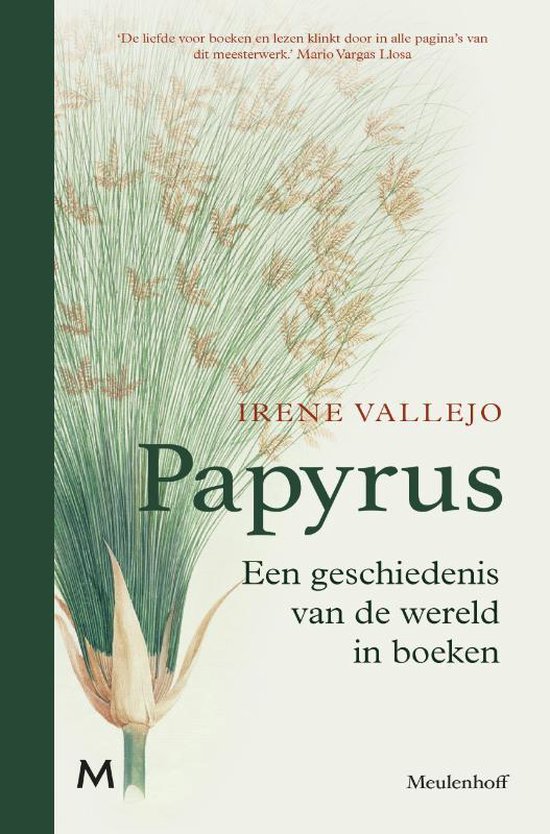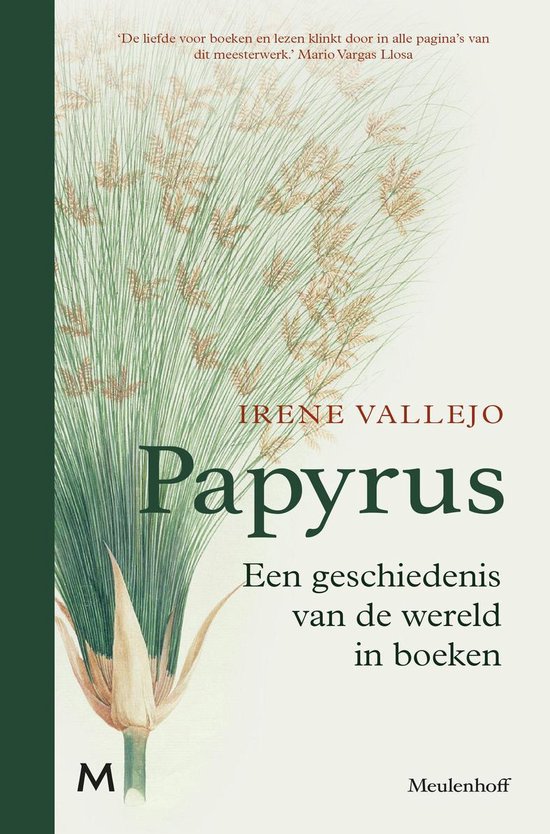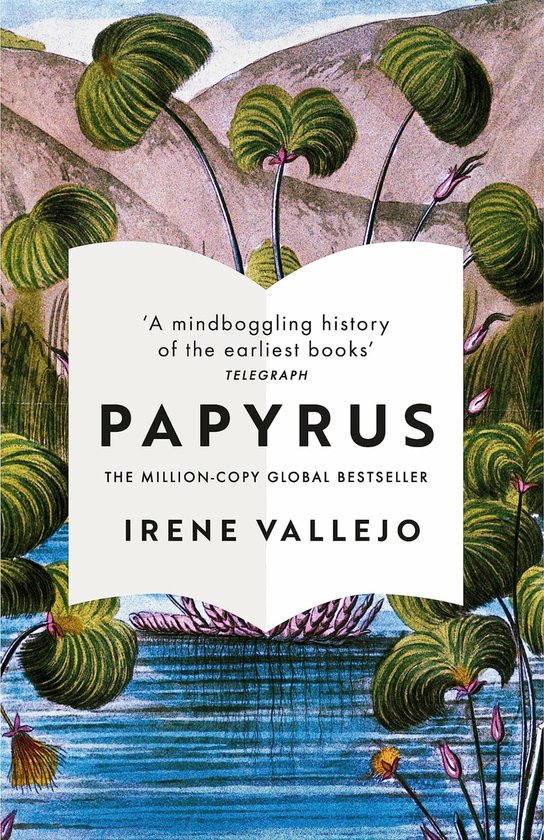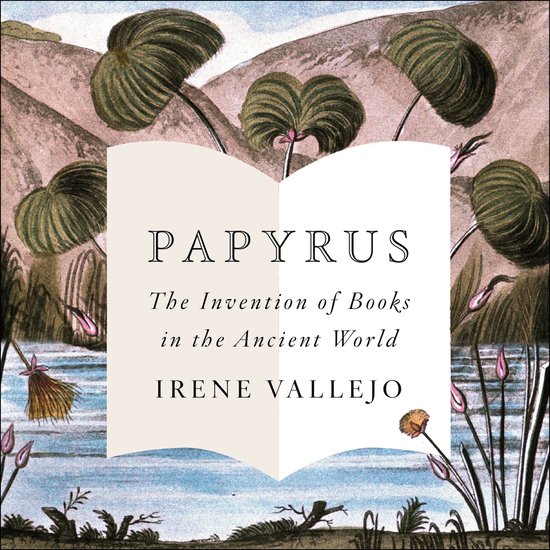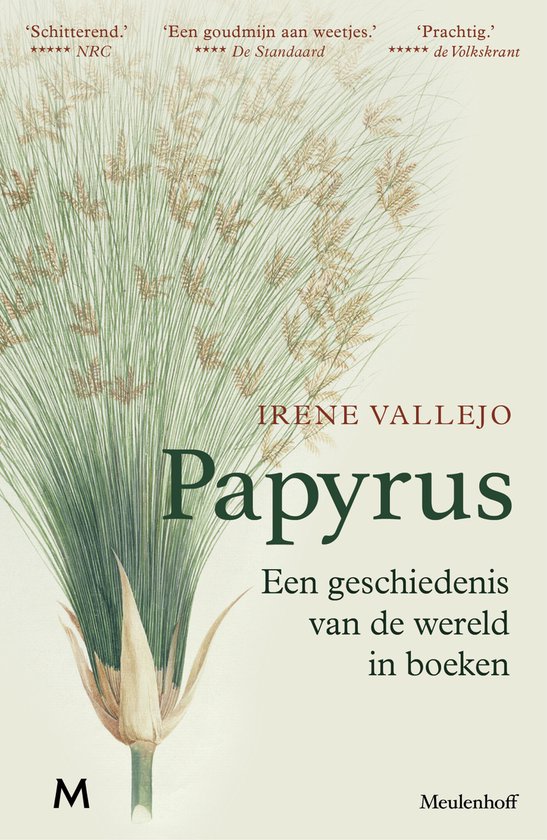
Papyrus
A rich exploration of the importance of books and libraries in the ancient world that highlights how humanitys obsession with the printed word has echoed throughout the ages Accessible and entertaining. The Wall Street Journal
Long before books were mass-produced, scrolls hand copied on reeds pulled from the Nile were the treasures of the ancient world. Emperors and Pharaohs were so determined to possess them that they dispatched emissaries to the edges of earth to bring them back. When Mark Antony wanted to impress Cleopatra, he knew that gold and priceless jewels would mean nothing to her. So, what did her give her? Books for her librarytwo hundred thousand, in fact. The long and eventful history of the written word shows that books have always been and will always be a preciousand precariousvehicle for civilization.
Papyrus is the story of the books journey from oral tradition to scrolls to codices, and how that transition laid the very foundation of Western culture. Award-winning author Irene Vallejo evokes the great mosaic of literature in the ancient world from Greeces itinerant bards to Romes multimillionaire philosophers, from opportunistic forgers to cruel teachers, erudite librarians to defiant women, all the while illuminating how ancient ideas about education, censorship, authority, and identity still resonate today. Crucially, Vallejo also draws connections to our own time, from the library in war-torn Sarajevo to Oxfords underground labyrinth, underscoring how words have persisted as our most valuable creations.
Through nimble interpretations of the classics, playful and moving anecdotes about her own encounters with the written word, and fascinating stories from history, Vallejo weaves a marvelous tapestry of Western cultures foundations and identifies the humanist values that helped make us who we are today. At its heart a spirited love letter to language itself, Papyrus takes readers on a journey across the centuries to discover how a simple reed grown along the banks of the Nile would give birth to a rich and cherished culture.
Long before books were mass-produced, scrolls hand copied on reeds pulled from the Nile were the treasures of the ancient world. Emperors and Pharaohs were so determined to possess them that they dispatched emissaries to the edges of earth to bring them back. When Mark Antony wanted to impress Cleopatra, he knew that gold and priceless jewels would mean nothing to her. So, what did her give her? Books for her librarytwo hundred thousand, in fact. The long and eventful history of the written word shows that books have always been and will always be a preciousand precariousvehicle for civilization.
Papyrus is the story of the books journey from oral tradition to scrolls to codices, and how that transition laid the very foundation of Western culture. Award-winning author Irene Vallejo evokes the great mosaic of literature in the ancient world from Greeces itinerant bards to Romes multimillionaire philosophers, from opportunistic forgers to cruel teachers, erudite librarians to defiant women, all the while illuminating how ancient ideas about education, censorship, authority, and identity still resonate today. Crucially, Vallejo also draws connections to our own time, from the library in war-torn Sarajevo to Oxfords underground labyrinth, underscoring how words have persisted as our most valuable creations.
Through nimble interpretations of the classics, playful and moving anecdotes about her own encounters with the written word, and fascinating stories from history, Vallejo weaves a marvelous tapestry of Western cultures foundations and identifies the humanist values that helped make us who we are today. At its heart a spirited love letter to language itself, Papyrus takes readers on a journey across the centuries to discover how a simple reed grown along the banks of the Nile would give birth to a rich and cherished culture.
| Auteur | | Irene Vallejo |
| Taal | | Engels |
| Type | | Hardcover |
| Categorie | | Wetenschap & Natuur |
